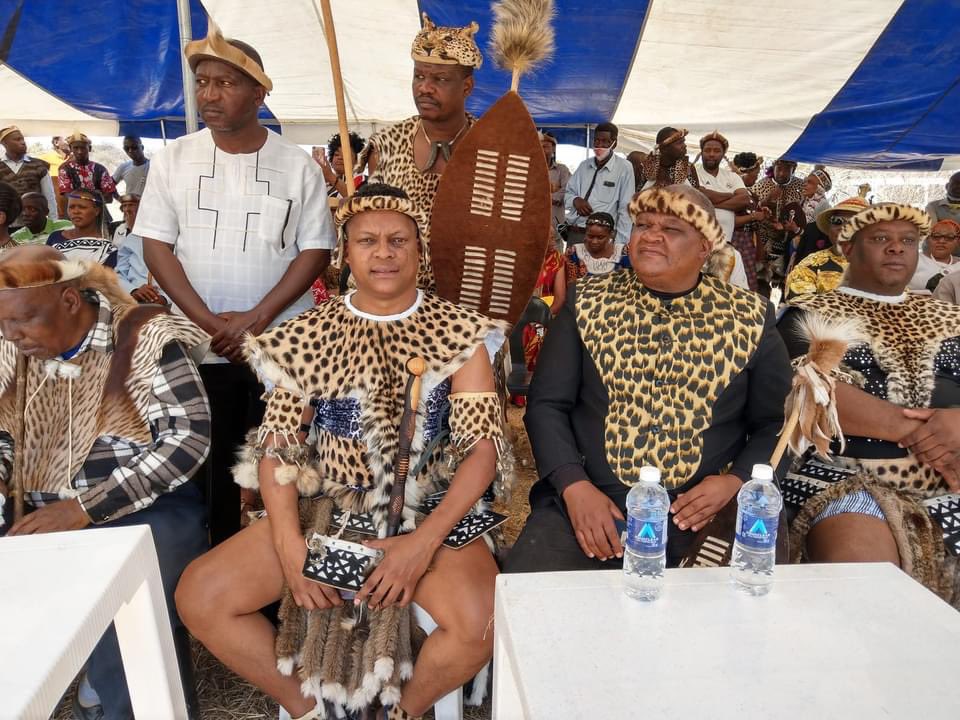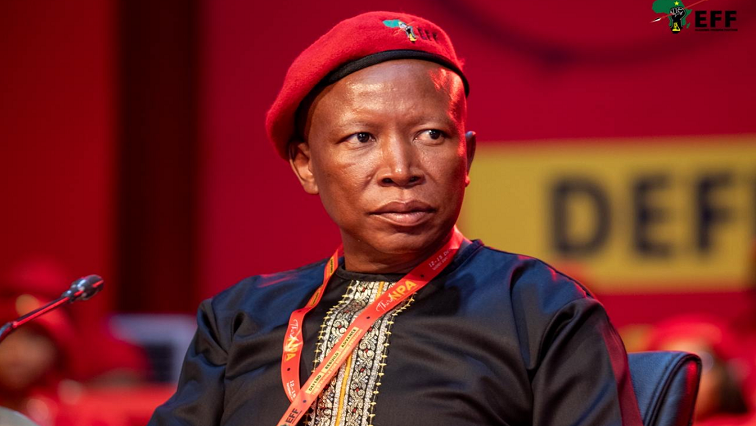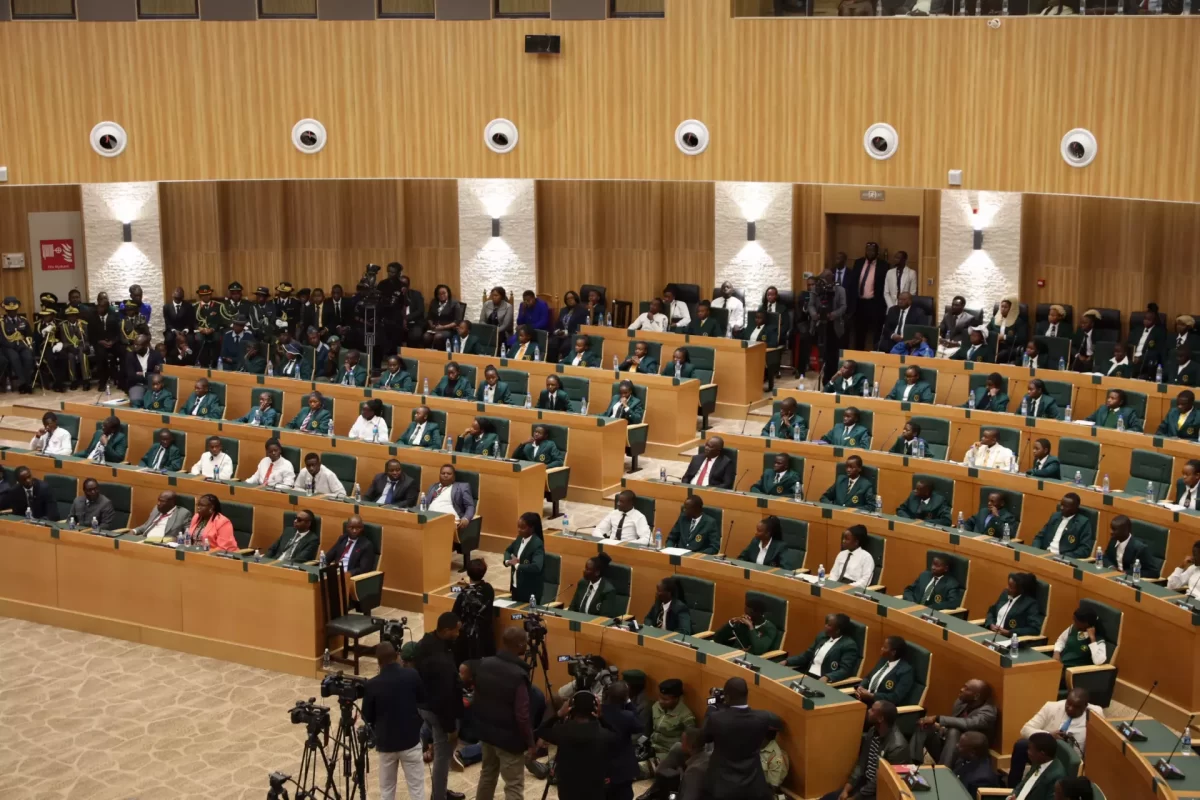WASHINGTON, United States – The United States on Monday imposed sanctions on dozens of businesses and people it said were involved in a global gold smuggling and money laundering network based in Zimbabwe, the US treasury Department said in a statement.
The sanctions targeted Kamlesh Pattni, who the treasury said befriended Robert Mugabe when he was president of Zimbabwe and engaged in a scheme to generate cash by selling the country’s natural resources in foreign jurisdictions and overreporting the amount of cash being brought back, which they received compensation for.
The UK also designated Pattni on Monday in a coordinated action.
The US treasury said Pattni’s network spanned several countries, including entities in the United Arab Emirates, Singapore and Kyrgyzstan.
The action marked International Anti-Corruption Day, the treasury said.
Britain announced its own sanctions on Pattni, and four others including his wife and brother-in-law.
The UK said the sanctions were meant to “disrupt and deter” the business dealings of Pattni.
He was allegedly one of the key architects of the Goldenberg scandal – a major gold and currency fraud in the 1990s which almost bankrupted Kenya and involved senior members of Kenya’s government.
He faced a trial in 2006 for his alleged role in the scheme, but proceedings collapsed. Pattni later became a self-proclaimed pastor and moved to Zimbabwe.
Pattni was implicated in Al-Jazeera’s explosive investigation into the “gold mafia” in Zimbabwe. He denied any involvement in money laundering or gold smuggling.
The US treasury said Pattni’s illegal network spanned multiple countries.
It said Pattni facilitated illicit activities by bribing officials, deploying trusted supporters to mask ownership, and weaving a global web of businesses to hide the illicit activities. This fraudulent scheme has robbed Zimbabwe’s citizens of the benefit of those natural resources while enriching corrupt government officials and criminal actors.
“Across the globe, when corrupt actors like Pattni choose to exploit openings in governance structures to benefit themselves and their cronies, communities suffer and public trust is undermined,” said Acting Under Secretary of the Treasury for Terrorism and Financial Intelligence Bradley T. Smith.
“Corruption respects no borders and its consequences are felt worldwide. As we mark International Anti-Corruption Day, the United States reaffirms our commitment to use all available tools to hold these individuals to account for their schemes.”
The US treasury said Pattni and members of his network engaged in a scheme wherein they would generate cash via the sale of Zimbabwean natural resources in foreign jurisdictions.
When Pattni and his network would return to Zimbabwe with the cash from the sale of the natural resources, they would overreport the amount of cash being brought back into the country, receive compensation on the overreported cash, and bribe government officials in Zimbabwe to receive protection for their illicit activity.
Pattni then hid the profits behind a global network of companies often controlled by members of the network, including frontmen, facilitators, couriers, and other supporters.
Primary among the network of companies Pattni oversees is Sun Multinational DMCC, an ostensibly legitimate company ultimately wholly owned by Marwa Investments Limited, which in turn is owned by one of Pattni’s long-time supporters and brother-in-law, Mukesh Manuskhlal Vaya.
Pattni, who has been identified as Sun Multinational’s “group chairman” by its CEO, Swetang Sinha, has put forward numerous Sun Multinational subsidiaries as potential avenues for the laundering of funds.
“Sinha has been identified as a main supporter for Pattni, as well as having been involved in corruption involving Zimbabwean President Emmerson Mnangagwa, who was sanctioned for corruption and serious human rights abuses on March 4, 2024,” the Treasury said.
Rahul Sood, Sun Multinational’s “managing director,” has also been key to Pattni’s network, acting as a manager and in other roles for numerous companies in the network.
Mishaal Hitesh Pattni, Pattni’s nephew, has also been identified as a key figure in Pattni’s extended network of companies, often facilitating Pattni’s activities and being featured as a manager or employee within the network of companies.
Included in the Sun Multinational group of companies are Fiza Gold and Bullion Trading L.L.C, which features Sood as its manager; Golden Luxury Jewellery Trading L.L.C, which features Mishaal as its managing director; Memories Golden Jewellery L.L.C, which features Sood as its manager; Ruhmeer Diamonds DMCC, which features Sood as a manager; and Sun Star Travel & Tourism L.L.C.
Although not part of the Sun Multinational group of companies, Sood also owns Singapore-based Sahara Petroleum PTE. LTD. and manages the United Arab Emirates-based Precious Bullion DMCC, where Mukesh is also an authorised signatory.
British Virgin Island-based Rubini Investment Group Limited at one time controlled Pattni’s investments in real estate. Pattni also controls UAE-based Samaria Holdings Limited, UAE-based Suzan General Trading JLT, and Kenya-based Manurama Limited. Pattni has long controlled the trading firm Suzan General Trading (PVT) LTD, located in Zimbabwe.
Sanjay Keshavji Vaya is considered Pattni’s “right hand man” as relates to his Zimbabwe-based activities, and his son Raj Vaya Sanjay has been identified as supporting Pattni by providing him gold and acting as a director on the Pattni-controlled Skorus Investments (PVT) LTD.
Another director of Skorus Investments Limited is David Paul Crosby, who also provides gold for Pattni and acted as a courier in the network. Crosby controls several companies based in Kyrgyzstan, including Sakhara Petroleum OSOO, Mirdk Fyuels OSOO, Royal Sona OSOO, and Suprim Ef Iks OSOO.
Dmytro Abakumov, who is also being sanctioned, has been a courier for Pattni and was at one time his personal trader, the US treasury said.
As a result of the sanctions, all property and interests in property of Pattni and his associates that are in the United States or in the possession or control of US persons must be blocked and reported.
“In addition, any entities that are owned, directly or indirectly, 50 percent or more by one or more blocked persons are also blocked.
In addition, persons that engage in certain transactions with the individuals and entities designated today may themselves be exposed to sanctions or subject to an enforcement action,” the treasury warned.
















